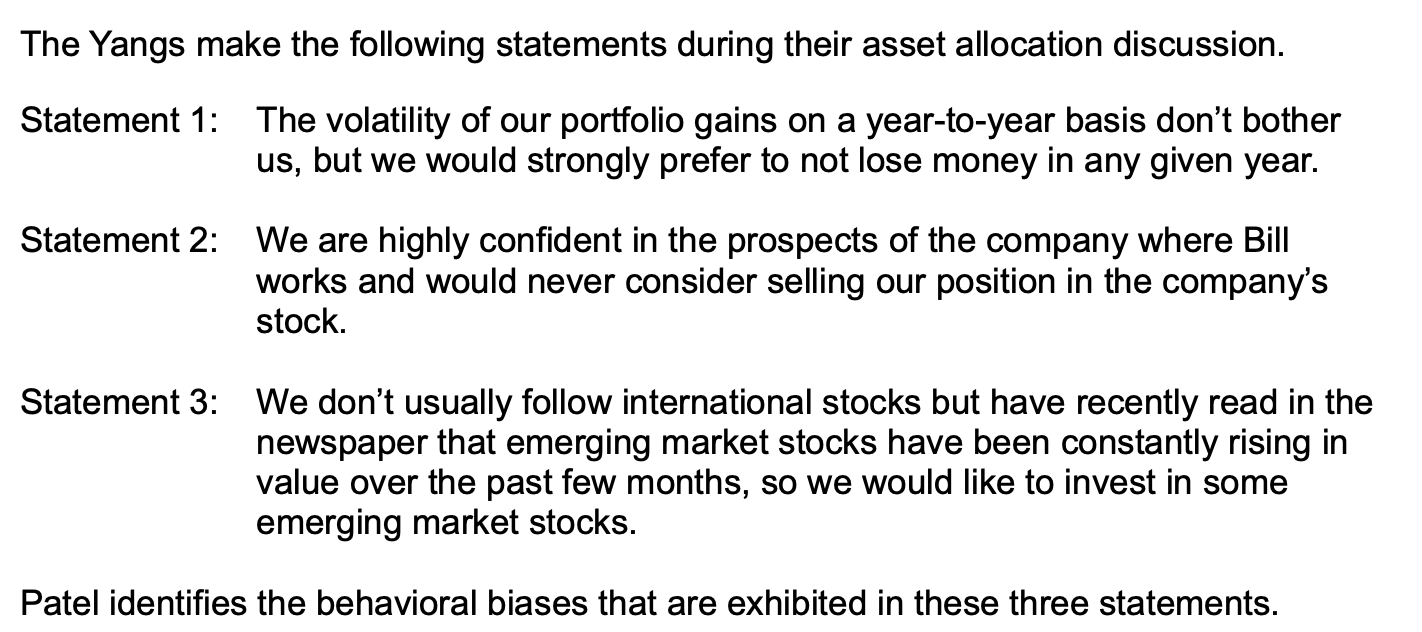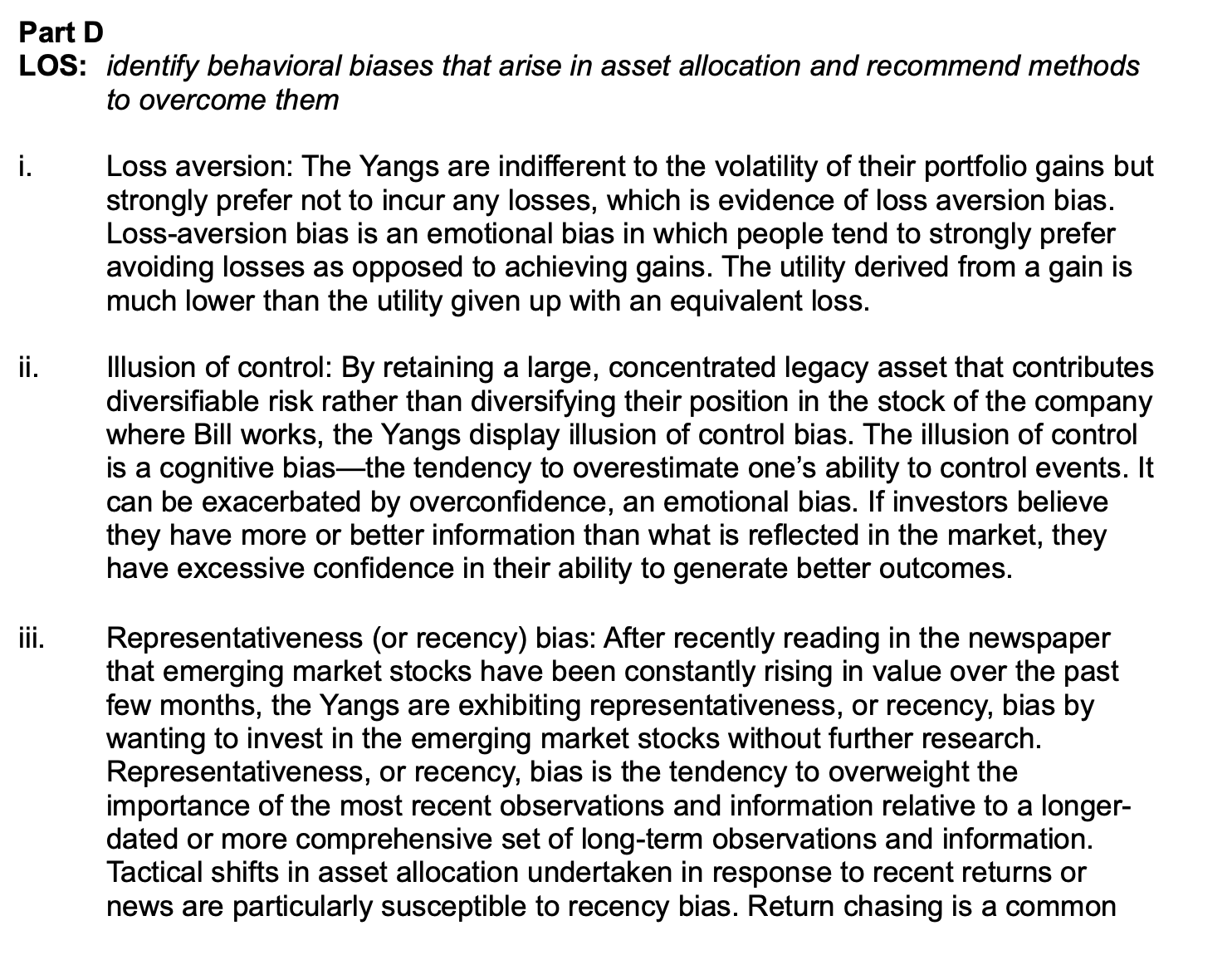

我有几个问题
- availability bias 和respresentativeness bias区分是什么我又忘了,可以再解释一下吗?是前者主要针对于过往发生的比较不好的事情记忆犹新么?比如financial crisis之类的,后者就更泛泛一点?近期发生的事情就行?然后anchoring bias更多要和数字结合起来?
- 这种考bias题目考到主观题怎么答啊,写的也太多了。
比如我第一题写对了loss aversion,然后后面只写了一句话就是说He pefer not to lose money in nay given year, which shows loss aversion. 我实在不知道还能怎么写了
第二题我写了They're highly confident in Bill's company and won't sell any stock. However, it is out of Bill's control to determine the company's business performance or stock performnce. So it shows illusion of control.
难道每个都需要把定义背下来?
3. 虽然第二题我答对了,但是当时做的时候有点犹豫这是illusion of control还是overconfidence (CME里面的内容),因为我记得课上说了个案例xx是公司高管,所以对公司很有信心,这体现了illusion of control所以选择对了,但是后者什么场景才选择呢?还是说这个题目出的不够好,应该给一个范围,否则CME的psychological bias和AA里面behavioral bias很难区分?



